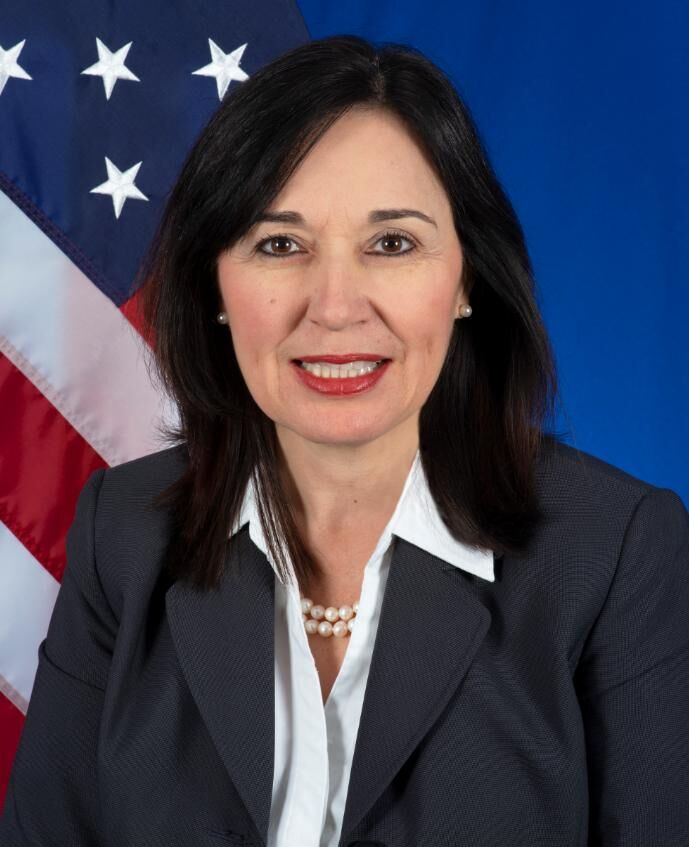Day 1 of 902 talks concluded
The first day of 902 consultations between the CNMI government and the United States government came to an end yesterday with talks set to continue today.
The talks were pursuant to Section 902 of the Covenant also known as “902 talks”
According to Frankie Eliptico, spokesperson for the Office of the Governor, following the conclusion of Day 1 of the 902 talks, the administration of Gov. Arnold I. Palacios and U.S. President Joseph Biden’s appointed representative, assistant secretary of the Interior Carmen G. Cantor, remained in deep conversation.
However, Eliptico stated that no further information could be released as of press time. However, the Office of the Governor assures the public that an official statement regarding the talks will be issued by days end today.
In an interview with Palacios last Tuesday, he said discussions with Cantor is expected to last two days or more and updates will be released once available.
Due to the sensitivity of the matter, Palacios was unable to divulge much details about the upcoming meeting.
“There’s a lot of sensitive issues that still need to be worked out, so I don’t want to get ahead of myself to give respect and courtesy to the federal side. When they all do show up, we are going to be having this conversation and how to approach,” he said.
When asked what the highlight of the conversations will be, Palacios said most likely Section 7 of the CNMI Covenant.
“Section 7 of our Covenant will be discussed, and it encompasses a lot including economic development, infrastructure, financial assistance, so we will be keeping our focus on that. That is the immediate focus. We don’t have a lot of time for these discussions, we only have two months before closing it out and coming up with an agreement. We want to work hard,” he said.
Last July, President Joseph Biden responded to the CNMI’s request to initiate consultations between the governments of the CNMI and the United States pursuant to Section 902 of the Covenant to “establish the Commonwealth of the Northern Mariana Islands in political union with the U.S.”
As part of his response, Biden officially appointed Cantor as his representative for the 902 consultations.
According to a previous article on the Saipan Tribune, for this round of consultations, Palacios requested to engage with the U.S. government on three priority issues: 1) direct financial assistance under Section 702 of the Covenant; 2) tourism and transportation infrastructure; and 3) access to skilled labor.
Section 702 of the Covenant provides for an initial seven-year period of financial assistance to the CNMI government.
After the expiration of that initial period, the U.S. government has continued to provide assistance to the CNMI through a series of long-term funding agreements.
The most recent long-term funding agreement was executed in 1992. That agreement, which, after being extended by the U.S. Congress, expired on Sept. 30, 2003, generally provided the CNMI with $11 million per year for Capital Improvement Projects.
In tourism and transportation, the Commonwealth’s economy hasn’t been what it used to be before the COVID-19 pandemic as visitor arrivals have gone down.
In recent years, the business sector has urged Palacios to ask the U.S. government to reinstate the exemption for the CNMI from the cap on direct flights between the U.S. and China.
This arises out of Article 6 of the 2007 U.S.-China Air Transport Agreement, which states that the airlines of the U.S. may provide unlimited scheduled air services between three points in the People’s Republic of China and Guam and the CNMI.
Essentially, Annex 6 gives the CNMI the opportunity to receive direct flights from China without having to go through the 2007 U.S.-China Air Transport Agreement between the U.S. and China.
On workforce woes, the CNMI-Only Transitional Worker Program will end in 2029. The CW-1 Program has a cap of 13,000 workers—a cap that is reduced annually by 1,000 workers.
In fiscal year 2025, the CW-1 cap shall be limited to 9,000 workers and does not authorize the hiring of construction and extraction occupations.
Currently, there are approximately 5,000 CW-1 workers in the CNMI and the CNMI may need as many 15,000 foreign workers to meet the demands of the growing economy and the development of new industries.
Palacios said the CNMI looks forward to engaging with Cantor and her team in a transparent and candid discussion about these issues and about how they can work collaboratively toward achieving goals that would mutually benefit the CNMI and the federal government
Section 902 of the Covenant provides that the government of the United States and the CNMI will designate special representatives to meet and consider in good faith such issues affecting the relationship between the Northern Mariana Islands and the United States as may be designated by either government and to make a report and recommendations with respect thereto.

Carmen G. Cantor






